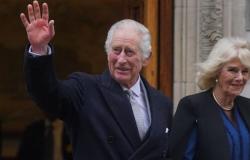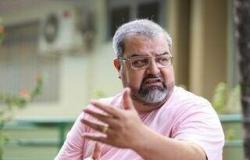
Six opponents of the Chavista regime have been taking refuge in the Argentine embassy in Caracas, the capital of Venezuela, since Monday (25).
Javier Milei’s presidential office confirmed the information on Tuesday (26) in a text published on the social network X (the former Twitter). This publication states that Argentina welcomed opposition political leaders at the Argentine embassy in Caracas “with the support of the inviolability enshrined in article 22 of the Vienna Convention on diplomatic relations, of which both nations, Argentina and Venezuela, are signatories”.
The Argentine Ministry of Foreign Affairs did not reveal the names of the people at the embassy, but, according to the Argentine newspaper “La Nación”, the six are linked to the Vente Venezuela party, led by leader María Corina Machado (see below who they are ).
The Argentines also claim that the electricity in the embassy property is no longer supplied and that it is the obligation of the State that receives diplomats to guarantee the mission facilities “against intrusions or damage and to preserve its tranquility and dignity”.
At the end of the note, it is stated that President Javier Milei “asks the socialist Nicolás Maduro to guarantee the security and well-being of the Venezuelan people and call for transparent, free, democratic and competitive elections“.
According to “Clarín”, the Argentine Minister of Security, Patricia Bullrich, decided to send two police officers to the embassy in Venezuela.
The entry of police officers depends on a visa from the government of Nicolás Maduro. If the agents are allowed to enter Venezuela as envoys from Argentina, they will have diplomatic immunity, according to “Clarín”.
According to the Argentine newspaper, the Argentine residence in Caracas does not have Argentine police protection, only the Bolivarian guard.
Since Javier Milei assumed the presidency of Argentina in December last year, the country has not appointed an ambassador to Caracas. The main Argentine diplomat in the country is chargé d’affaires Gabriel Volpi.
Last week, Venezuela’s attorney general, Tarek Saab, stated that two people close to María Corina Machado had been arrested.
He further said that had arrest warrants for seven other people, including an important advisor, Magalli Meda (according to “La Nación”, she is one of six people at the Argentine embassy).
Who are the opponents who took refuge in the embassy?
According to “La Nación”, the following people are at the Argentine embassy in Venezuela:
- Magalli Meda, campaign manager for María Corina Machado.
- Pedro Urruchurtu, international coordinator of the Vente Venezuela party.
- Former deputy Omar González.
- Humberto Villalobos, an elections expert.
- Claudia Macero, responsible for party communications.
There is a sixth person who does not want to reveal his identity.
Omar González, the former deputy who is at the embassy, gave an interview to an Argentine radio station and said that they have not yet started the process to request political asylum.
The Vente Venezuela party is part of an alliance called Democratic Unitary Platform (PUD), which published a text on the social network of that country spoke out in favor of citizens who want free and fair elections in Venezuela.”
Note from Brazil ‘dictated by the USA’
Venezuelans claim that an official statement from Brazil that had been released earlier is interventionist, “nebulous and appears to have been dictated by the United States Department of State”, points out a note signed by the Venezuelan Ministry of Foreign Affairs.
“The Ministry of People’s Power for Foreign Affairs of the Bolivarian Republic of Venezuela repudiates the gray and intrusive statement, written by Itamaraty officials, which appears to have been dictated by the United States Department of State, where comments filled with profound ignorance and ignorance about the political reality in Venezuela”, says an excerpt from the statement.
“[O Brasil] observes that the candidate nominated by the Unitary Platform, a political opposition force, and over which no judicial decisions hovered, was prevented from registering, which is not compatible with the Barbados agreements. The impediment has not, to date, been the subject of any official explanation”, says an excerpt from the Itamaraty statement.
In Venezuela, opposition candidate reports that she cannot register for election
In addition to saying that the Brazilian text is interventionist and that it appears to have been influenced by the USA, the Venezuelans also stated that they have maintained “a conduct that is faithful to the principles that govern diplomacy and friendly relations with Brazil” and that they do not pass judgment of value on the political and judicial processes that take place in Brazil.
Therefore, said the Venezuelan government, they demand “respect for the principle of non-interference in internal affairs and in our democracy”, which they themselves call “one of the most robust in the region”.
Venezuelans also complain that Brazil did not mention that on Monday, when President Nicolás Maduro formalized his candidacy for re-election, a man was arrested with weapons. The Venezuelan government says it was an assassination attempt.
At the end of the Maduro government’s text there is a thank you to the Brazilian president, Luiz Inácio Lula da Silva (PT), who “directly and without ambiguity, condemned the criminal blockade and the sanctions that were imposed by the USA”. Lula and Maduro are historic allies.
The elections will be held on July 28. Nicolás Maduro will seek a third term, which could lead to 18 years in power.
One of the heads of the opposition coalition, Omar Barboza, stated that the group faced restrictions in the National Electoral Council’s online systemand, therefore, was unable to register Corina Yoris’ candidacy.
On Monday morning, Corina stated that the opposition front had made every attempt, but that the system was completely closed.
“We tried to go to the National Electoral Council in person to deliver a letter requesting an extension and we were not even physically able to do so“.
However, at the last minute, another opposition figure, the governor of the state of Zúlia, Manuel Rosales, decided to register and managed to complete his registration with the National Electoral Council.
Rosales, who did not intend to run as a candidate, will now be Maduro’s main competitor at the polls. With profile pragmatic and negotiatorhe will run for Um Novo Tempo (UNT), also an opposition party.
This Monday, the opponent Maria Corina Machado said she would still analyze whether her coalition would support Rosales.
Analysts say that blocking Corina Youris is politically motivated. Political scientist Jorge Morán told the AFP news agency that Chavismo seeks to repeat the scenario of 2018, when the opposition boycotted the presidential elections won by Maduro.
Philosopher and university professor, Yoris, 80 years old, has never worked in public administration, and her name appears clean in the National Electoral Council database.
She was nominated for the opposition candidacy by Vente Venezuela, the party of a Venezuelan with a similar name, Maria Corina Machado, who won primaries among all the opposition parties in the country.
Since last Thursday (21), nine candidates who present themselves as opponents have registered, but some of them are accused of collaborating with the Chavista government.
Maduro formalized his candidacy
The president of Venezuela, Nicolás Maduro, did not have the same problems and formalized his candidacy for re-election this Monday (25).
He arrived at the National Electoral Council accompanied by thousands of activists called by the ruling party, the PSUV.
The Venezuelan president stated that two armed men, whom he linked to María Corina Machado’s party, were detained after infiltrating the Chavismo rally with the plan to assassinate him.
A group of seven Latin American countries (Argentina, Costa Rica, Ecuador, Guatemala, Paraguay, Peru and Uruguay) published a joint statement in which they stated that they were concerned “about the impediment of registration” of Corina Yoris.
Analysts discard his candidacy and talk about looking for another candidate, with fewer connections to María Corina Machado. The consensus, however, is that any name registered by the opposition must be supported by the opponent.
Tags: opponents Chavista regime refuge Argentine embassy Venezuela cuts buildings electricity World
--




